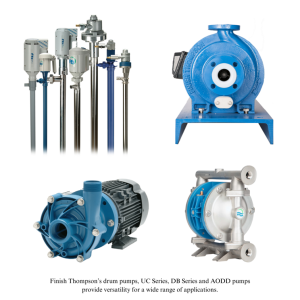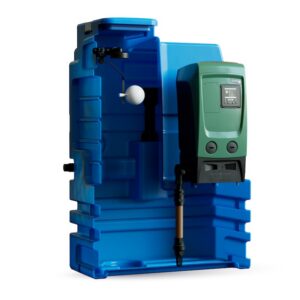CDI Energy Products Received NSF/ANSI/CAN 61 Drinking Water Systems Components Certification

CDI Energy Products Received NSF/ANSI/CAN 61 Drinking Water Systems Components Certification. (Image source: CDI Energy Products)
The Drinking Water System Components standard, also known as NSF/ANSI/CAN 61, is an American and Canada National Standard that establishes minimum health-effects requirements for chemical contaminants and impurities that are indirectly imparted to drinking water from products, components, and materials used in drinking water systems. NSF/ANSI/CAN 61 is intended to cover specific materials or products that come into contact with drinking water, drinking water treatment chemicals, or both. The standard covers a variety of products and materials, including but not limited to joining and sealing materials, protective barrier materials, process media, and non-metallic potable water materials. Specific Polyphenylene Sulfide (PPS) based materials within CDI’s material portfolio have been approved and certified for use in mechanical devices.
“The increased shortage of potable water and the ever-growing global population are key factors driving demand for drinking water and water treatment services worldwide. We pride ourselves on being a solutions provider and wanted to rise to the challenge in supporting this critical need. We recognized our material formulation had the right physical, mechanical, and water absorption properties perfectly suited for drinking water systems,” stated Raju Kalidindi, M. Tech, MSME, Senior R&D Materials Engineer for CDI.
CDI is an industry leader for the design and manufacture of non-metallic wear rings and bearings for vertical turbine pumps, horizontal split case pumps, and submersible pumps, which are integral to the drinking water systems industry. Non-metallic bearings in these pumps deliver the high impact capability, low friction, self-lubrication, edge loading capability, and electrical resistance that OEMs demand for optimal pump performance.
Daniele Frisardi, CDI’s Director Business Operations & Marketing for Europe, and Strategic Marketing Manager for the Pump Industry shared his excitement on the new certification. “This certification opens the door for us to solve our customers’ pain points in a whole new way. Our customers rely on CDI to design and manufacture top-quality components that deliver greater stability while extending equipment MTBF (Mean Time Between Failure). We will develop pump wear rings and bearings for the drinking water industry with the same high standards our customers have come to expect and trust from CDI.”
In coming weeks, CDI will share additional information specific to the material approved by the NSF. Please contact a member of the CDI Global Sales team to inquire about a material data sheet.
Source: CDI Products







